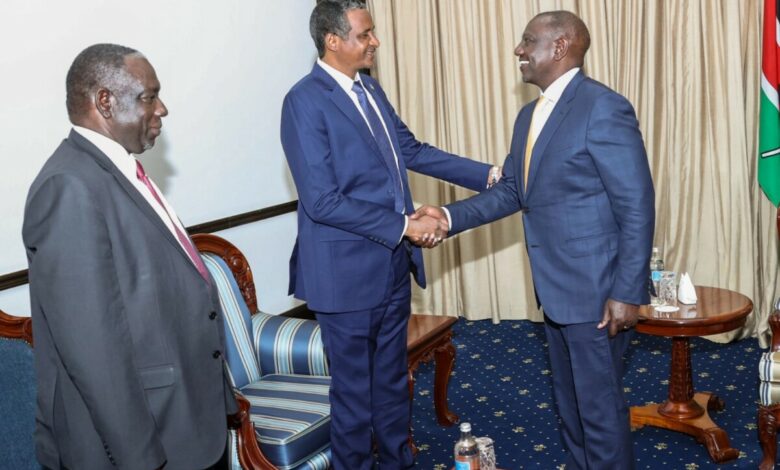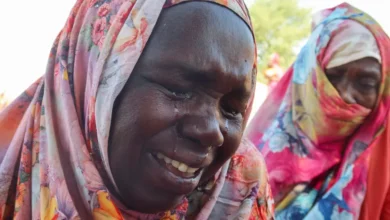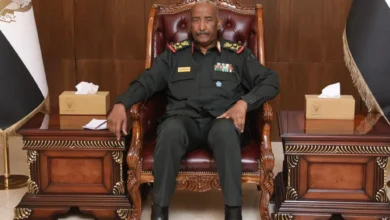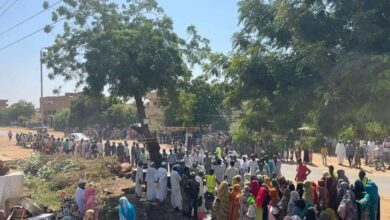Why does Sudan reject Kenya’s presidency of IGAD?

Against the background of the political and economic relationship that was described in the document between Kenyan President William Ruto and the commander of the Rapid Support Forces, Muhammad Hamdan (Hamedti), and for official Kenyan positions that were considered a diminution of Sudan’s sovereignty, Khartoum announced its rejection of Kenya’s presidency of the Quartet Committee on Resolving the Sudan Crisis (IGAD).
That the emergency summit of the mechanism on April 17 decided to form a committee of chairs and chose the President of South Sudan, Salva Kiir Mayardit, and this decision remains valid even after the expansion of the committee by adding the Prime Minister of Ethiopia.
Khartoum believes that Salva Kiir Mayardit is most appropriate to head the committee in accordance with that decision, and for his role in reaching the “Juba” peace agreement in Sudan.
The Chairman of the Sovereignty Council, Abdel Fattah Al-Burhan, officially notified the head of the current session of IGAD of his country’s position, stressing support for its initiative aimed at finding possible solutions for peace in Sudan.
Sudan’s Sovereignty
A statement by the Sovereignty Council led by Al-Burhan said that Kenya is “a non-neutral party” in the crisis that has beset their country since mid-April.
Khartoum stated that the statements of senior Kenyan officials and the behavior of its government adopt the positions of the Rapid Support Forces, and that it harbors its members and provides them with various types of support.
A diplomatic source said that the Kenyan government, through its president and foreign minister, expressed after the outbreak of the crisis positions that represent a diminution of Sudan’s sovereignty and interference in its private affairs.
He said that the Kenyan government, without consulting with Sudan and without any authorization from any international or regional party, arranged special meetings for the Sudanese crisis with the participation of Sudanese and foreign personalities, and issued positions from these meetings that included a degree of guardianship over Sudan, and lack of respect for the institutionalization of IGAD, which was Khartoum at the time.
IGAD Rules and Customs
During the IGAD summit, which was held on Monday, June 12, and hosted by Djibouti, it was announced that a quartet committee would be formed, headed by Kenya and South Sudan, with the membership of Ethiopia and Somalia. To solve the crisis in Sudan.
It is customary for IGAD decisions on such issues to be taken by consensus, and there is no consensus on this matter, and Sudan clearly expressed its rejection of Kenya’s presidency of the committee, and this approach appeared after that in the draft final statement that was prepared after the conclusion of the summit.
It is worth noting that creating an organization of governments that represents the sovereignty of member states, and expresses the will of these governments, and therefore cannot impose on any government something that it does not agree with, especially if it relates to an internal matter of its own.
Close Relationships
On the other hand, a Sudanese military source told Al Jazeera Net that Khartoum’s reservations about Kenya’s presidency of the mechanism relate to the close ties and connection between Kenyan President William Ruto and the Rapid Support Commander, Lieutenant General Muhammad Hamdan “Hamidti”, who visited Nairobi last January, and Kenya announced at the time Its support for the framework agreement signed between the Sudanese military and civilian parties.
And Lieutenant General Al-Burhan, during a phone call to the head of the current session of IGAD, President of Djibouti Omar Gili, had accused Kenya of harboring leaders of the Rapid Support Forces.
And with news circulating about the presence of the Rapid Support Commander in one of the neighboring countries, the matter was linked – according to military sources – to some countries, most notably Kenya, given the relationship between its president and Hamidti.





